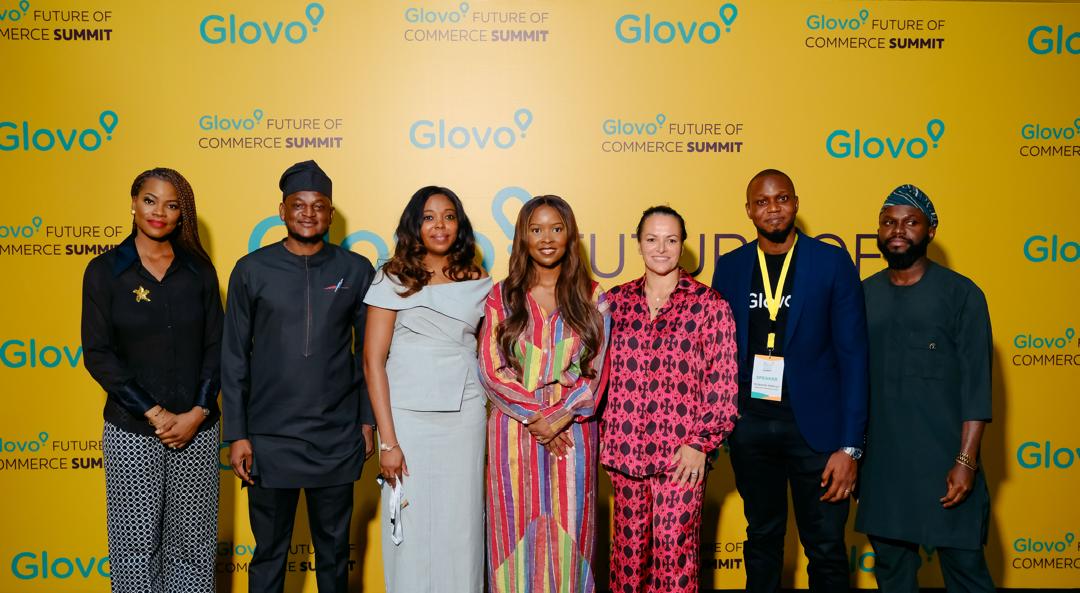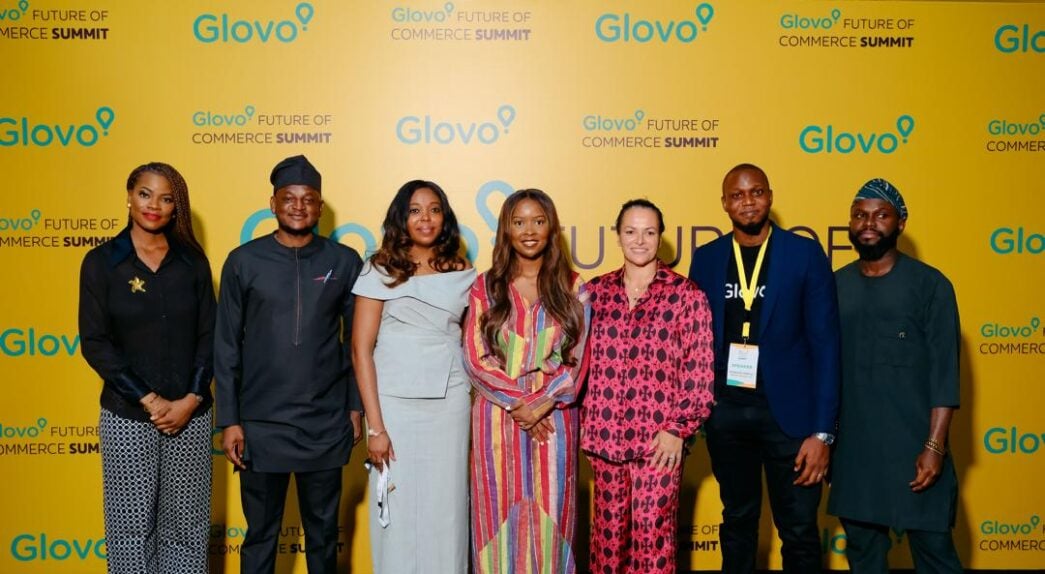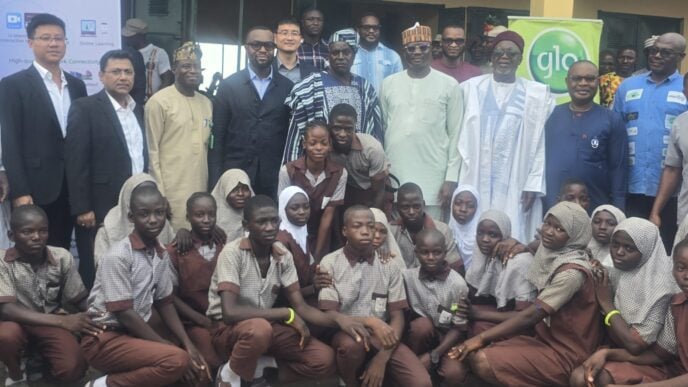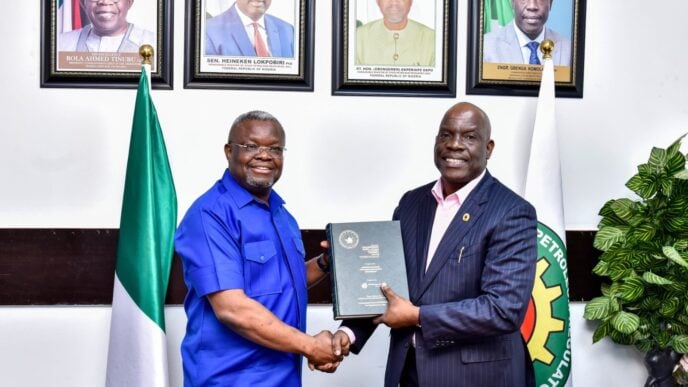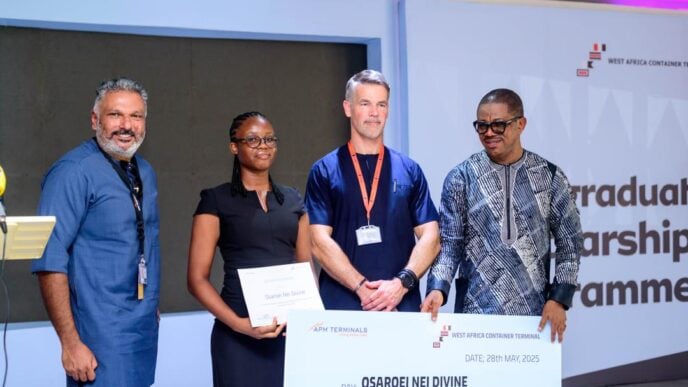L-R: Olamidun Ogundoyin, CEO, Sooyah Bistro; Rasheed Jaiyeola, CEO, Bukka Hut; Ayo Anibaba, CEO Sweet Sensation; Lamide Akinola, General Manager, Glovo Nigeria; Tannaz Bahnam, Founder, Lost in Lagos/Awari; Kolawole Adeniyi, Head of Commercial, Glovo Nigeria; Olusegun Ake, CEO, Molabat, at the Glovo Future of Commerce 2025 Summit at Landmark, Lagos on 28th May, 2025
Glovo Nigeria successfully hosted the Future of Commerce 2025 Summit at the Landmark Event Centre, bringing together an influential gathering of ecosystem leaders, restaurateurs, policymakers, fintech pioneers, digital marketers, and investors for a full-day experience that explored the future of business in Nigeria’s fast-paced commerce landscape. The inaugural event served as a strategic platform for dialogue on innovation, resilience, and scaling within Nigeria’s food and quick commerce industries, as well as an opportunity to showcase Glovo’s evolving role as a technology and growth enabler for SMEs across the country.
In her keynote address, Lamide Akinola, General Manager of Glovo Nigeria, shared the brand’s journey from its humble beginnings in Barcelona to becoming a leading global tech platform. Lamide highlighted that Africa has been a critical part of Glovo’s journey since entering the continent in 2018 and has invested over €200 million in building and growing the delivery ecosystem on the continent. She said “The Future of Commerce Summit is a reflection of Glovo’s deep commitment to building an inclusive, tech-enabled marketplace that supports real growth for our partners in Nigeria. As we look ahead, our focus remains on enabling restaurants partners and shops,to scale through data, logistics, and financial inclusion”.
The event featured a series of insightful sessions, including discussions on growth and resilience with leaders from Chicken Republic and Burger King, and brand scaling with executives from Molabat, Sweet Sensation, Bukka Hut, and Sooyah Bistro. Fintech experts from Salad Africa, Moniepoint, WEMA Bank, and New Trails Capital explored digital tools for unlocking capital, while panelists from 500 Chow, Firewood Jollof, and Gourmet Twist highlighted how virtual kitchens and supermarkets are reshaping food delivery and distribution.
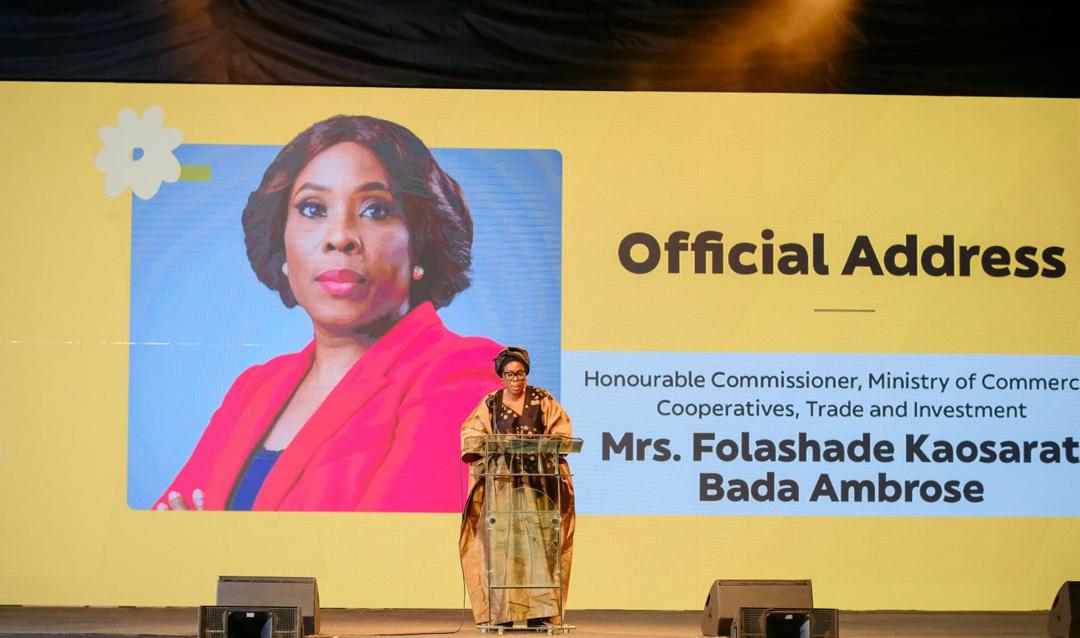
“The future of commerce in Lagos is digital, inclusive, and people-centered. With programmes like LASMECO and strategic collaborations with forward-thinking platforms like Glovo, we are not only bridging the financing gap for MSMEs but also driving innovation, job creation, and long-term economic resilience. Our vision is to build a 21st-century economy where no business is left behind.” contributed Mrs. Folashade Kaosarat Bada Ambrose, Honourable Commissioner for Commerce, Cooperatives, Trade and Investment, Lagos State
The summit underscored Glovo’s data-driven impact, revealing that since launching in Nigeria in 2021, the platform has generated over ₦71 billion in revenue for its local partners. With over 6,000 shops and restaurants having fulfilled orders via the app over the years, Glovo continues to demonstrate its capacity to drive partner growth at scale, being a first entry-point for most of them into the online world. In 2024 alone, quick commerce emerged as the fastest-growing segment with a 76% growth in GMV, reinforcing Glovo’s role as a catalyst for rapid digital retail expansion. A notable transformation has also occurred in the way users transact via the app, cash payments dropped from 88% of all orders in 2021 to just 39% today, indicating a 55% decrease. This shift aligns with the government effort to promote a cashless economy and highlights Glovo’s contribution to advancing financial inclusion in Nigeria. Today, more than one in five Nigerian users uses the platform to access products other than foodservice, making Glovo one of the biggest marketplaces to buy anything online. In addition, Glovo supports 2,400 riders across Nigeria, with monthly earnings averaging two to three times above the national minimum wage, further reflecting the platform’s inclusive economic model.
A noteworthy part of the summit was the local unveiling of Glovo’s Yellow Effect Report, which chronicles the company’s social and economic contributions across Africa. The report revealed that, between 2020 and 2024, Glovo generated over €1 billion in direct economic value for 45,000 businesses across six African countries, 90% of which are small and medium-sized enterprises, highlighting its continent-wide impact in driving digital inclusion and local economic growth.
In recognition of excellence within its ecosystem, Glovo presented awards to outstanding partners. Notably, City Subs received the ‘Best Rated’ award for the highest number of positive reviews for delivered orders. Among riders, Christian Ogbu and Bija Samson were honored as ‘Veteran Riders for their excellent performance and highest number of completed orders delivered on Glovo.
As the summit came to a close, stakeholders were encouraged to build on the momentum and deepen inter-sector collaboration. With operations now spanning 11 cities and Lagos accounting for over 70% of the national footprint, Glovo’s vision to create the largest online marketplace remains firmly on course. Attendees left energized by the discussions and the tangible evidence of Glovo’s contribution to shaping the future of commerce in Nigeria.
About Glovo
Glovo is a leading technological platform connecting customers, businesses, and riders, offering multicategory on-demand services from local restaurants, grocers and supermarkets, and high street retail stores. As a frontrunner in Quick Commerce, the next generation of e-commerce, Glovo’s vision is to build the largest online marketplace to give everyone access to anything in their city within minutes. Founded in 2015 in Barcelona, it operates across 23 countries in Europe, Central Asia, and Africa.
For more information about Glovo, please visit: https://about.glovoapp.com/
